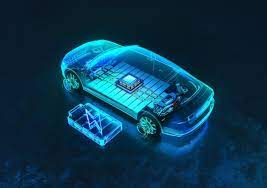As a result of China’s increased control over the sale of Graphite, South Korea is looking to countries in Africa to obtain the mineral. Graphite is an essential component of the batteries that power electric vehicles (EV).
According to a statement released by the commerce ministry on Monday, South Korea wants to make use of the resources of a number of countries, including Mozambique and Tanzania, in order to make up for any potential supply gaps. The Chinese government announced last week that it would “safeguard national security and interests” as a result of a plan to tighten export limits on certain categories of graphite.
Read also: GA Insurers Supports Kenya’s EV Revolution
Global implication of China’s decision
According to the findings of the United States Geological Survey, China accounts for around 65% of the world’s total production of this essential component. In example, it is believed that Chinese companies possess more than 80% of the market share in negatively charged materials for automobile batteries. High-purity graphite is necessary for the production of these batteries.
An investigation has been opened by the European Union to determine whether or not electric vehicles manufactured in China have unjustly hampered competition by being marketed at low prices thanks to subsidies. “We take the export restrictions as a deterrent to the EU investigation,” said a source at a European business.
It was feared that Northvolt, an up-and-coming battery firm with headquarters in Stockholm, may have difficulty acquiring graphite and anode materials, which might compromise their intentions to grow production.
According to several sources, Chinese enterprises have either momentarily ceased providing the company as well as its business partners or have demonstrated a reluctance to grow supply. The Western firms who cooperate with Northvolt, such as Volkswagen (VW), are growing increasingly cautious of the battery maker’s reliance on China. Northvolt also collaborates with other companies.
Western automotive behemoths are already making haste to recruit new suppliers in the days leading up to the official implementation of export kerbs by China. According to reports from Reuters and other media outlets, the American corporation Tesla has reportedly signed a supply contract with an Australian company that operates a graphite mine in Mozambique. Others, such as the German automobile manufacturer Mercedes-Benz, are also in a hurry to secure graphite by forming partnerships with businesses in Australia.
However, for the time being, Chinese enterprises continue to handle a significant portion of the manufacture of high-purity graphite as well as the supply chain for anode materials.
According to the executive of a European company, “it will be difficult to establish a supply chain outside of China immediately.” “Export restrictions can potentially be a bottleneck for the expansion of EV production,” he added.
How this affect EV battery production in South Korea
Major South Korean battery manufacturers have expressed concern in response to an announcement made by China, which is the largest producer of graphite in the world. Beginning on December 1st, Beijing has announced that it will implement export limits for graphite, which is considered to be a highly sensitive material.
Graphite is a crucial component in the manufacturing of electric vehicle (EV) battery anodes, which serve as a terminal inside of a rechargeable cell. The declaration from China came just a few days after the United States increased its attempts to prevent China from obtaining breakthrough chip technology. Beijing has stated that its actions are not directed towards any particular nation.
According to the statement made by the commerce ministry, South Korea plans to deepen high-level diplomatic discussions with China in order to ensure seamless graphite imports. In addition to this, it will work to hasten the opening of a domestic facility that produces synthetic graphite, which is currently slated to take place in the next year, and it will also work to accelerate the development of silicon anodes as an alternative to graphite.
The decision made by Korea occurred after government authorities met with representatives from significant industry participants in the battery business, including LG Energy Solution, SK On, Samsung SDI, and Posco Future M. When it comes to manufacturing anything, from semiconductors to batteries for electric vehicles, the nation is highly dependent on imports.
